What I’ve Caught Up With, May, 2024 Part 2:
Film: The Ghost Writer (2010)
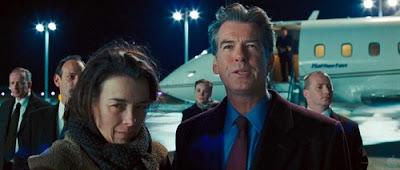
Roman Polanski is a monster. I feel like I need to say that before each of his films that I review or mention. The Ghost Writer is a political thriller that feels very much like Polanski trying to explain the existence of Tony Blair by sexing up his connections to American espionage circles. The cast is a good one (Ewan McGregor, Pierce Brosnan, Olivia Williams, among others—and a late-in-life cameo from Eli Wallach), but the film feels very derivative in many ways. Essentially, this feels like a political version of The Ninth Gate, to the point where the two films literally converge on plot at the end. The main difference is that this has a metaphorical Satan, not a real one.
Film: Denial (2016)
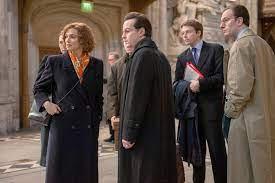
It staggers me to think that there are Holocaust deniers in the world, but, given the modern American political landscape, I probably shouldn’t. Denial is the story of the Deborah E. Lipstadt (Rachel Weisz), Jewish historian and Holocaust expert accused of libel by Hitler apologist and Holocaust denier David Irving (Timothy Spall) for her comments in her book, calling him an anti-Semite and extremist. This seems like it should be a nothing, but understand that should Lipstadt be found guilty, it would give credence to denialism. This is gripping, and features a masterclass by Weisz, Spall, and also Tom Wilkinson as Lipstadt’s barrister. This is a film that feels important and backs it up by living up to that importance.
Film: 84 Charing Cross Road (1987)
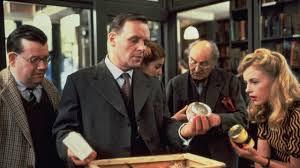
Almost entirely plotless, 84 Charing Cross Road features a woman in New York (Anne Bancroft) who writes to a British secondhand bookstore in search of some cheap books she can’t find at home and finds her letters answered by one of the workers (Anthony Hopkins). Thus begins a decades-long correspondence about books and life on both sides of the Atlantic. This reminded me of Cavalcade, except that I thoroughly enjoyed this and this is based very much on a true story. The letters that we hear being read in the film are the real letters between Helene Hanff and Frank Doel (and others) from the years immediately follaowing World War II through to the end of the 1960s. This is good enough that I literally didn’t realize that there wasn’t much of a plot until it was more than halfway through.
Film: It Should Happen to You (1954)
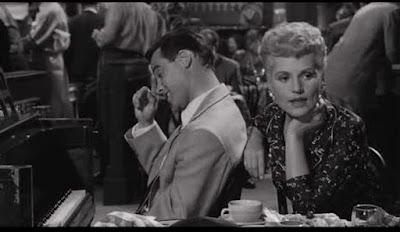
Judy Holliday was such a talent and her loss was a terrible one. It Should Happen to You was right in the heart of her career and put her as the corner of a love triangle with Jack Lemmon and Peter Lawford. In what seems like the inspiration for L.A. billboard purchaser Angelyne, Gladys Glover (Holliday) decides to make a name for herself by renting a billboard and putting her name on it. It works in the sense that it attracts the attention and frustration of documentarian Pete (Lemmon) and takes up the desired location for soap company owner Evan (Lawford). When fame starts to come her way, Gladys needs to make some choices. The choices she makes won’t shock you, but it’s fun getting there, especially with Holliday and Lemmon, two stand-out comedic talents.
Film: Dogtown and Z-Boys (2001)
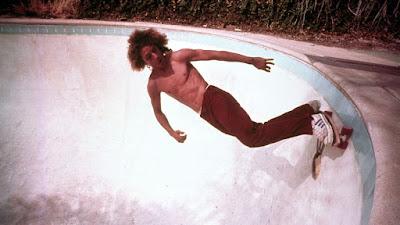
As someone who grew up in suburban Chicagoland in the ‘70s and ‘80s, skateboarding in swimming pools and down hills wasn’t really a thing, but it certainly was in California. Dogtown and Z-Boys traces the roots of skateboard culture coming out of a poor neighborhood in Venice, California, starting from a group of young surf punks who were looking for something to do once the waves became unsurfable. Made by one of the original Z-Boys, the film looks at the evolution of skating, going from flat surfaces to vertical and the incorporation of surfing techniques. I still can’t skate a lick, but it’s hard not to find this a compelling story.
Film: Edison, the Man (1940)
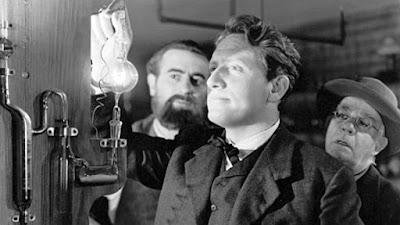
Hagiography about Thomas Edison, this film is absolutely a product of its time. The Great Depression still raging and war escalating in Europe, American exceptionalism was an easy sell. Starting from the perspective of a gala banquet in his honor, the film tells Edison’s story in flashback, starting with his invention of a new stock ticker. It’s loaded with pure Americana and gumption, and while it certainly played in 1940, it seems very dated today. Spencer Tracy does yeoman’s work, but he always did. It’s hard to deal with today simply because too much about Edison is known for this to be taken seriously, but Tracy always did good work. As an odd side note, I was born in Edison County, New Jersey, a few miles down the road from Menlo Park.
